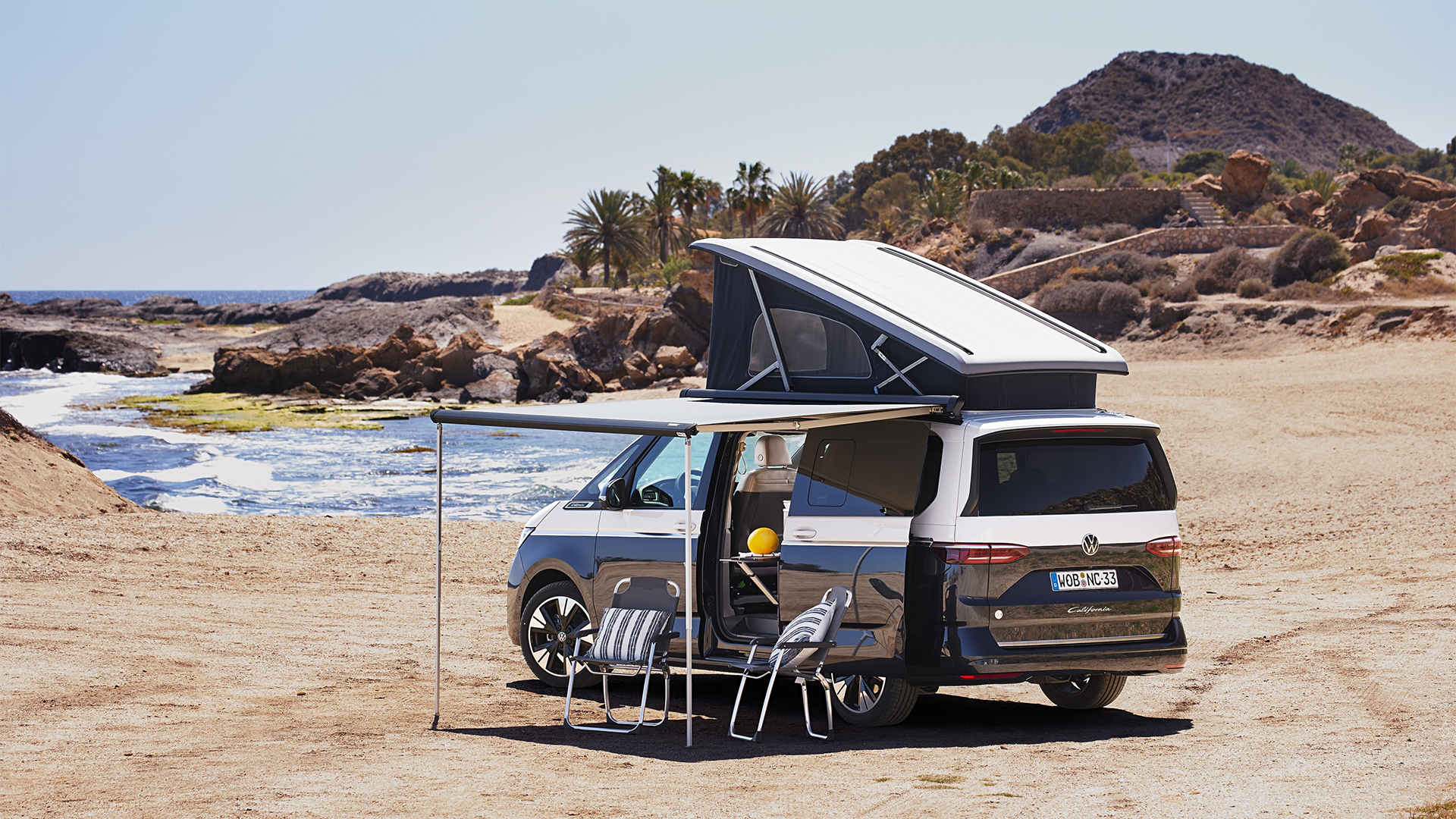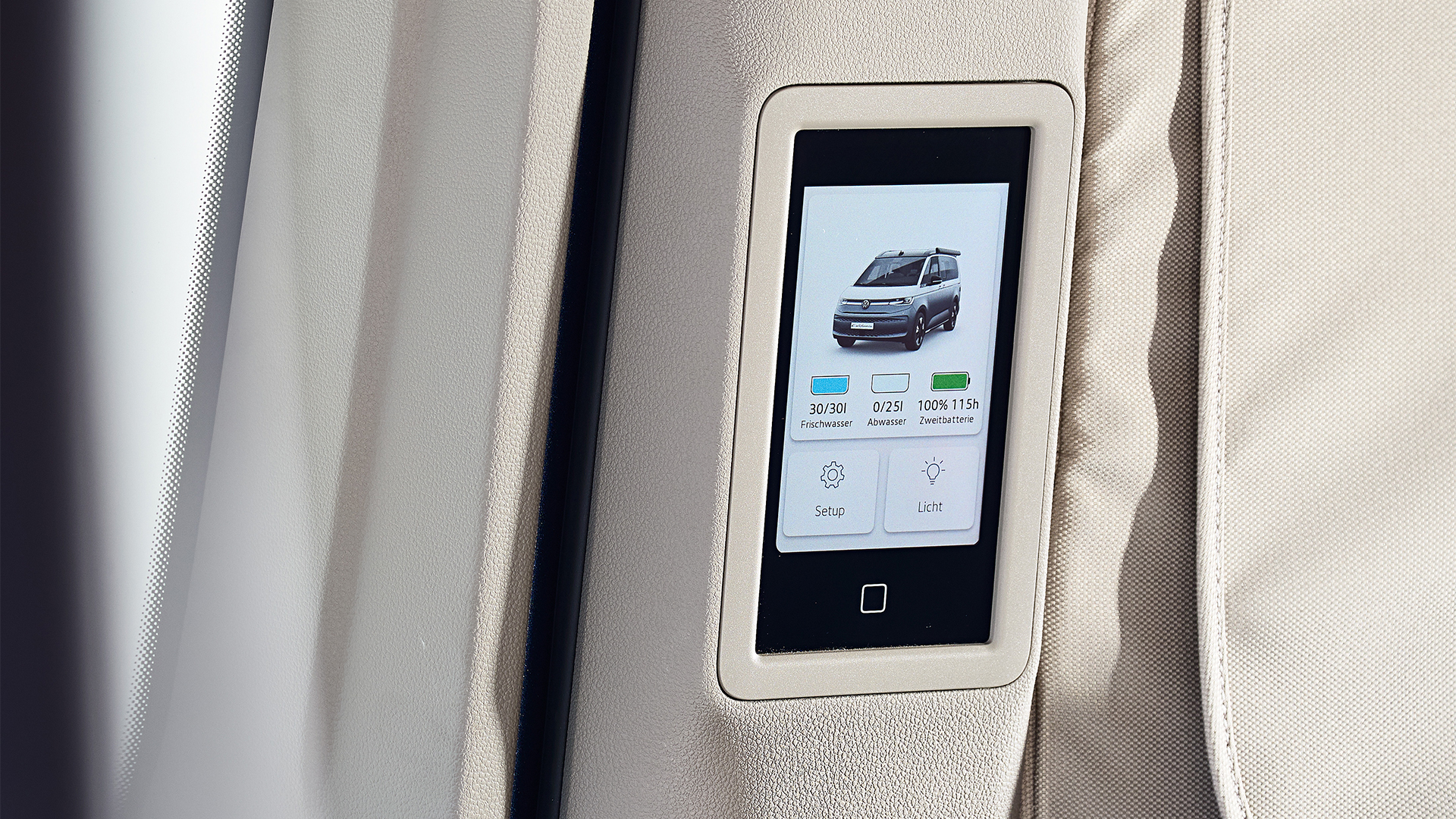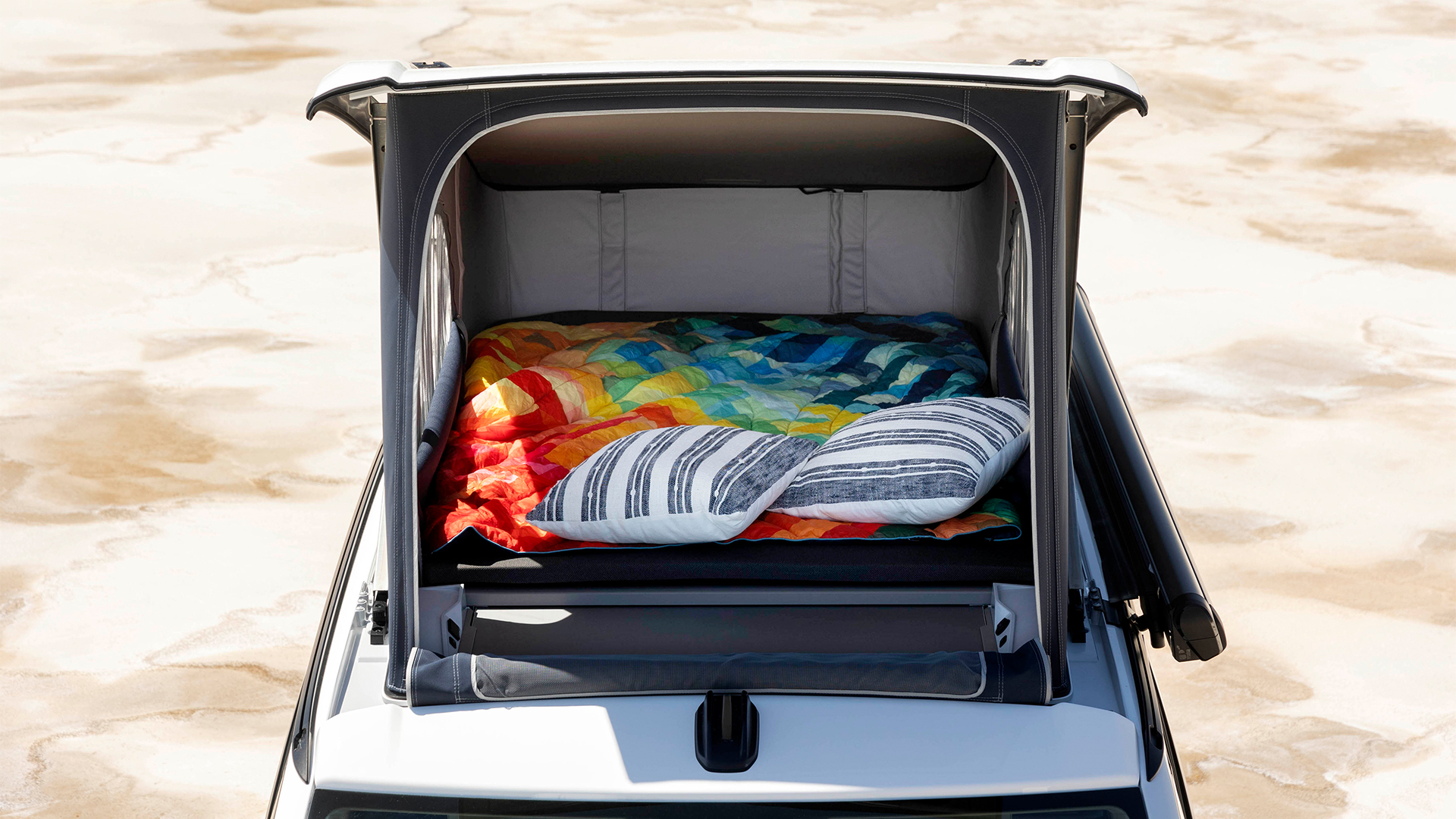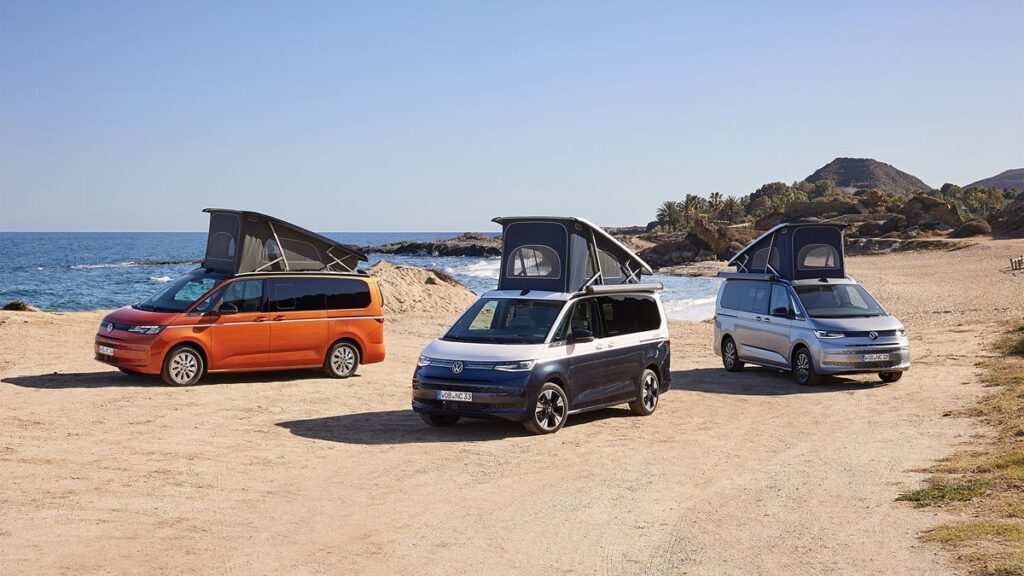Volkswagen has revealed all about its newest camper van model in California. This model is based on the long-wheelbase version of the excellent Multivan and boasts more high-tech touches and a smoother drive than ever before.
After teasing the concept last year, Volkswagen has confirmed that this is the first time its California campervan will be offered with an optional plug-in hybrid powertrain. The e-Hybrid delivers 245 horsepower by combining a 1.5-liter turbo gasoline engine with an electric motor and battery to drive all four wheels. Both petrol and diesel versions will also be sold.
Although there is no official word on the all-electric range, the concept vehicle on which this production model is primarily based was equipped with a 13kWh battery capable of delivering around 40km of emissions-free driving.

Moving away from a commercial vehicle platform and instead sharing much of its underpinnings with the Hyundai Multivan, which uses VW's MQB automotive architecture, the seventh-generation California is longer, roomier, and more comfortable with the luxury of an outdoor lifestyle. This means freeing up even more interior space for your vehicle. Provides an overall improved driving experience.
This is also the first time a California has twin sliding doors, making it much easier to get in and out when parked. This new configuration means that Volkswagen has mainly changed the interior, with the compact kitchen in the Beach Camper model now featuring an opening in the trunk that slides back to provide a windbreak when cooking or washing up. Functions such as using the section are accessible from the outside.
The kitchen itself has also been redesigned, with the worktops folding neatly and the hob, toolbox and sink all cleverly stowed away when not in use. Plus, there are countless clever storage sections and drawers for cutlery and utensils.
Twin doors were not possible in previous models as the kitchen area was built into one side of the California, which affected driver or passenger seat adjustment depending on the position of the steering wheel. With this new configuration, the California can also be specified with a rear bench seat (seats three) or individual seats, giving you the feeling of traveling first class.

As always, the latest Californias feature pop-up roofs (including the “base” Beach model), providing comfortable sleeping space for two adults. Additionally, all variants from Beach Tour to California Coast are equipped with fold-down mattresses and convertible rear seats. For extra sleeping space.
Even more impressive is the 5-inch touch display at the rear of the New California, which controls everything from freshwater levels to wastewater levels (the top-spec Ocean model comes with a 28-litre freshwater tank). Provides background lighting, power status, adjusts refrigerator temperature, and sets timer if auxiliary heater is specified.
There's also a neat camp mode on the display, which automatically disables the return and return lights to avoid disturbing others in your campsite every time you open the door.
Most of the above features can also be controlled through the California smartphone app, and the infotainment system features a new tilting display to help you precisely level your camper for the perfect night's sleep.
Analysis: Glamping is expensive

Volkswagen says pre-sales for the new California will begin this summer, with first deliveries expected later this year. However, the price of the new model has not yet been confirmed.
The current model is expected to cost more than £80,000 (approximately $100,000 / AU$152,000), so expect prices for the latest versions to be quite high, especially the top-of-the-line hybrid-powered Ocean model.
The recent campervan boom, itself fueled by social media and a rekindled love of nature spurred by the pandemic, has driven demand for van conversions and sent pre-built campers and RVs through the roof. As a result, the prices of these types of products have also increased.
Despite the seemingly huge potential customer base of outdoor enthusiasts, Volkswagen won't sell the latest California 6.1 in the U.S., citing the cost of certifying the model for markets outside Europe. I've made a decision. Therefore, it is very unlikely that the seventh generation will make it across the Atlantic.
Thankfully, the recent electronic ID buzz have Sales have been confirmed in the US, with Carsten Intra, CEO of Volkswagen Commercial Vehicles, confirming to Autocar in March last year that an ID Buzz-based campervan would arrive in 2025 – so the US I still have high hopes for the camper van with the VW badge on the way.


